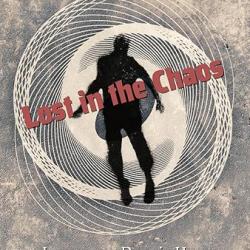Of course there are also many differences between "The Story of the Goblins" and A Christmas Carol. Yet one of the most striking differences is the conclusion. Whereas Gabriel Grub slunk away out of fear that the townspeople would laugh at him, Ebenezer Scrooge resolved to live a changed life. After the Ghost of Christmas Future revealed to Scrooge his own sorry death, Scrooge exclaimed: "I will honour Christmas in my heart, and try to keep it all the year. I will live in the Past, the Present, and the Future. The Spirits of all Three shall strive within me. I will not shut out the lessons that they teach." And so he did.
Yet in light of the tale of Gabriel Grub, who ran away from town for fear of people's laughing scorn, let's read once again the conclusion to A Christmas Carol. Scrooge had just promised to Bob Cratchit that he would raise his salary and help his struggling family. After this Dickens writes:
Scrooge was better than his word. He did it all, and infinitely more; and to Tiny Tim, who did not die, he was a second father. He became as good a friend, as good a master, and as good a man, as the good old city knew, or any other good old city, town, or borough, in the good old world. Some people laughed to see the alteration in him, but he let them laugh, and little heeded them; for he was wise enough to know that nothing ever happened on this globe, for good, at which some people did not have their fill of laughter in the outset; and knowing that such as these would be blind anyway, he thought it quite as well that they should wrinkle up their eyes in grins, as have the malady in less attractive forms. His own heart laughed: and that was quite enough for him.
Both in "The Story of the Goblins Who Stole a Sexton" and in A Christmas Carol Dickens recognizes that people will laugh when a person is transformed from bad to good. Yet whereas this fear kept Gabriel Grub in bondage, Scrooge was able to transcend it. "His own heart laughed: and that was quite enough for him." Just as Gabriel Grub recognized that people must have happiness in their hearts, and that this helps them overcome life's difficulties, so it was with Ebenezer Scrooge.
But the difference between Grub and Scrooge suggests a tantalizing question: Why did Ebenezer Scrooge change? And why did he change so thoroughly that he didn't even mind if people were to laugh at him?
Transformation begins when something interrupts our ordinary experience.
For at least a couple dozen years Ebenezer Scrooge had been a committed grouch, miser, and Christmas-hater. But then something interrupted his otherwise ordinary experience. In his case the interruption was supernatural: the spirit of Jacob Marley and the three spirits of Christmas past, present, and future. These spirits forced Scrooge out of his rut and propelled him along a life-changing path.
I've seen this sort of thing happen time and again in life. People are going along their merry way when all of a sudden something causes them to veer off their established path. Sometimes it's an unexpected blessing: a new job, a new love, a new friend. Often, perhaps most commonly, the catalyst for change is something unwelcome, at least at first, such as cancer, marital conflict, or being laid off.
Transformation comes through pain.
Throughout Ebenezer Scrooge's momentous night, he frequently felt pain: the pain of having been a lonely boy, the pain of his broken engagement, the pain of suffering children, the pain of his own wasted life. This pain was essential to Scrooge's transformation in a number of ways. For one thing, it opened his frozen heart, helping him to feel things he had not felt for ages. Yet pain also caused Scrooge to desire a different life, a life filled with the joys of living.
In my pastoral experience, people are rarely interested in spiritual renewal when they're happy with life. When everything's great, they're understandably happy to stay on their familiar course. But if that course leads to suffering, then they're all of a sudden interested in God.
Sometimes, unfortunately, that pain-driven interest is short-lived. I think of a couple who have been irregularly involved in my church. When they first started attending years ago, it was because their marriage was on the rocks. But when God helped them find healing, they were happy to return to life apart from Christian community. Then, several years later, the husband had severe heart problems, ones that might have been fatal. Once more, he and his wife were eagerly involved in church. But when the surgery was successful and life got back to normal, this couple stopped showing up at church. I fully expect that I'll see them again when the next crisis hits. So pain alone doesn't forge lasting change in people, though it surely can help.
Transformation comes through children.




